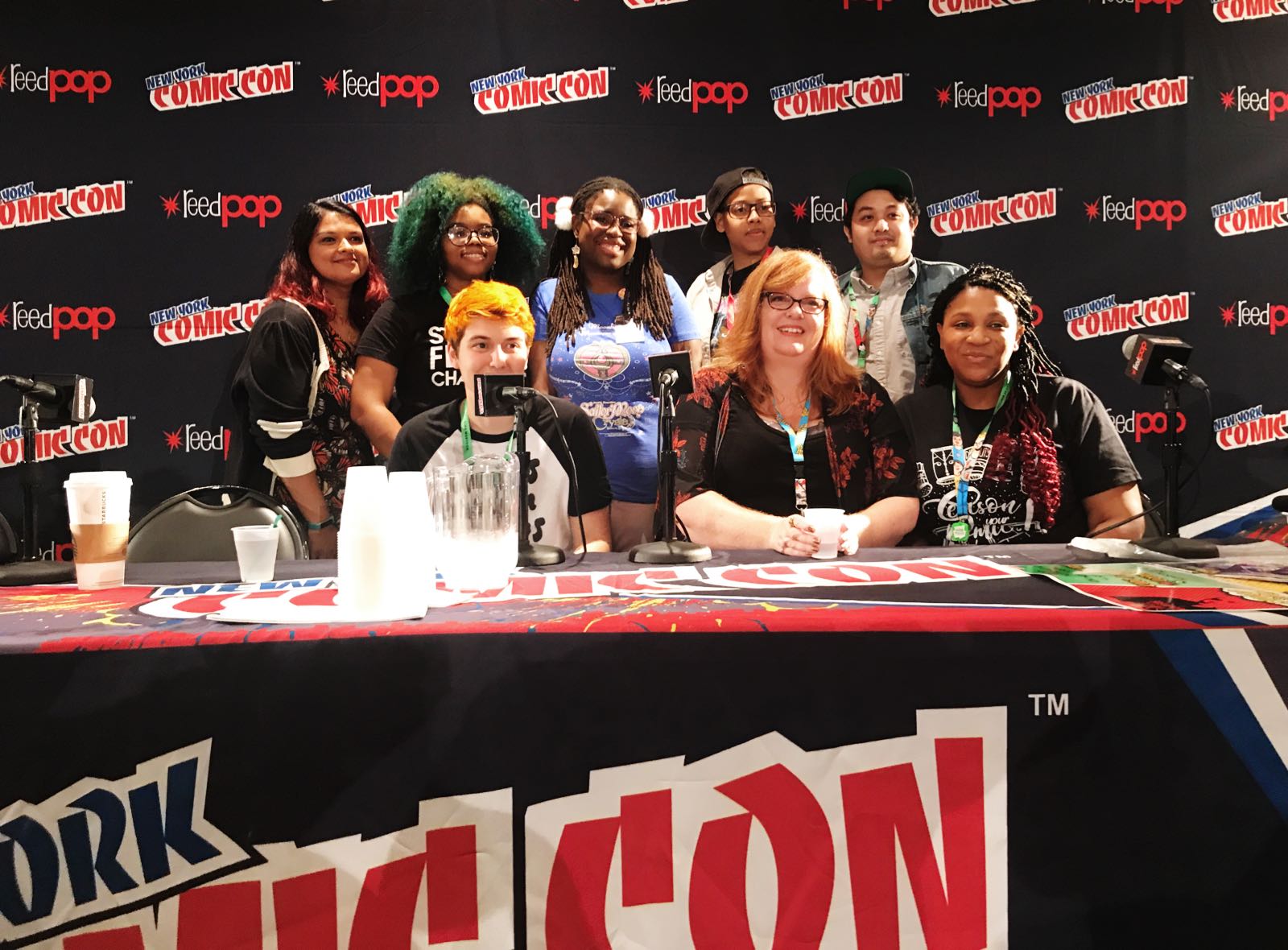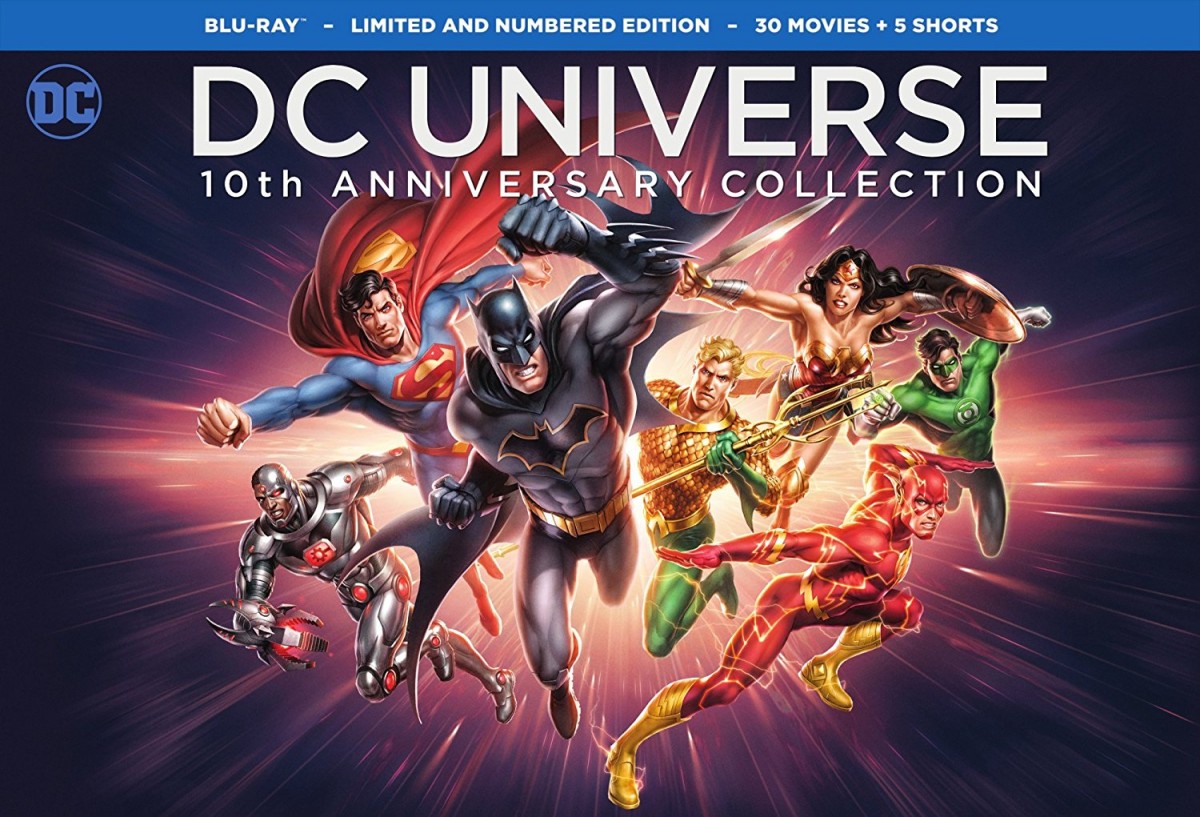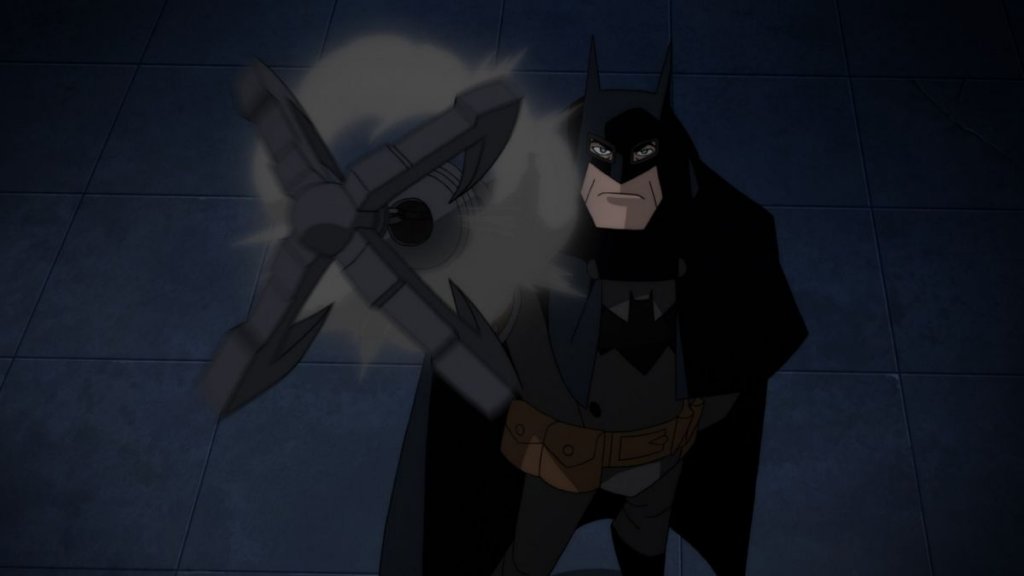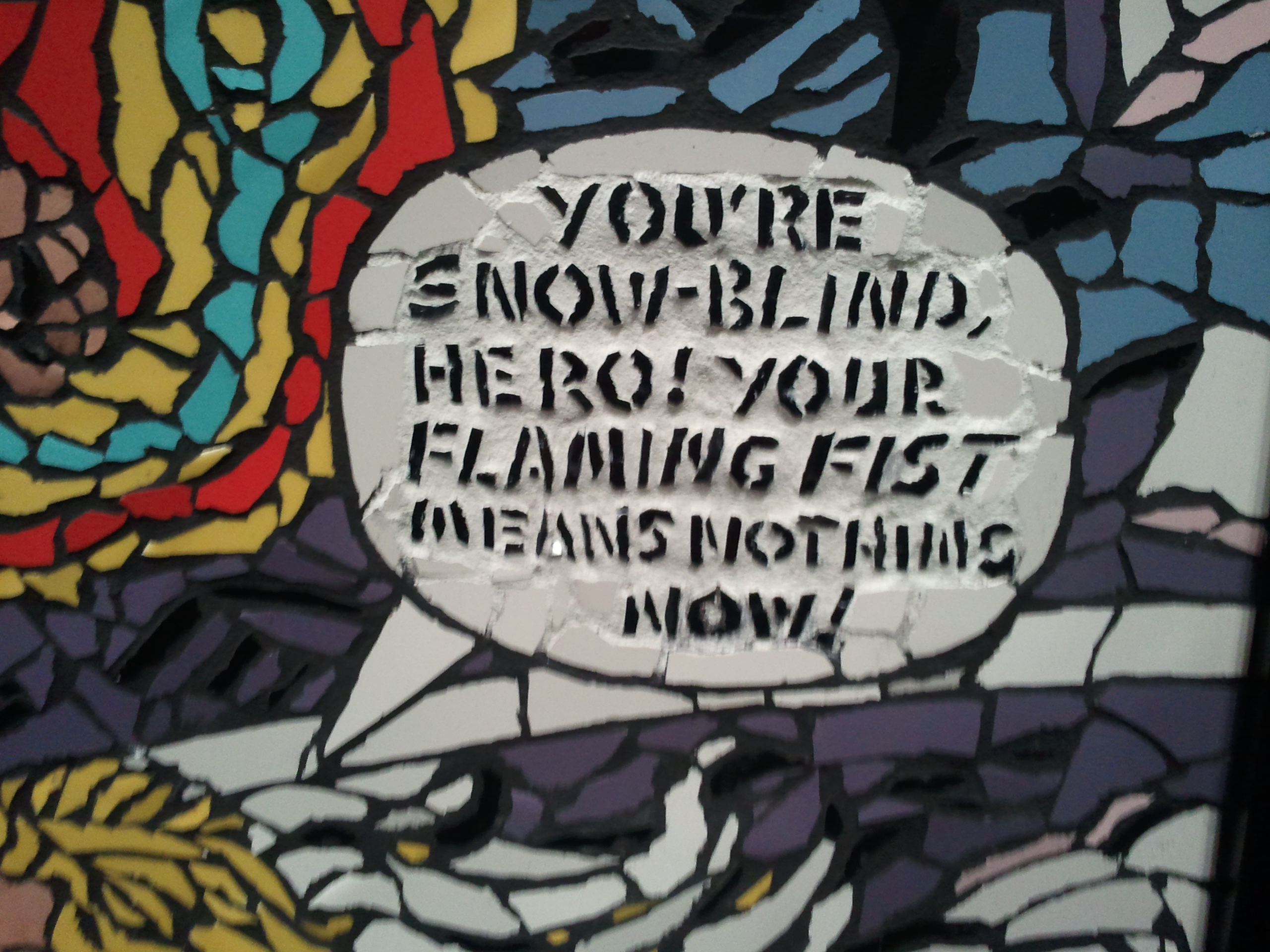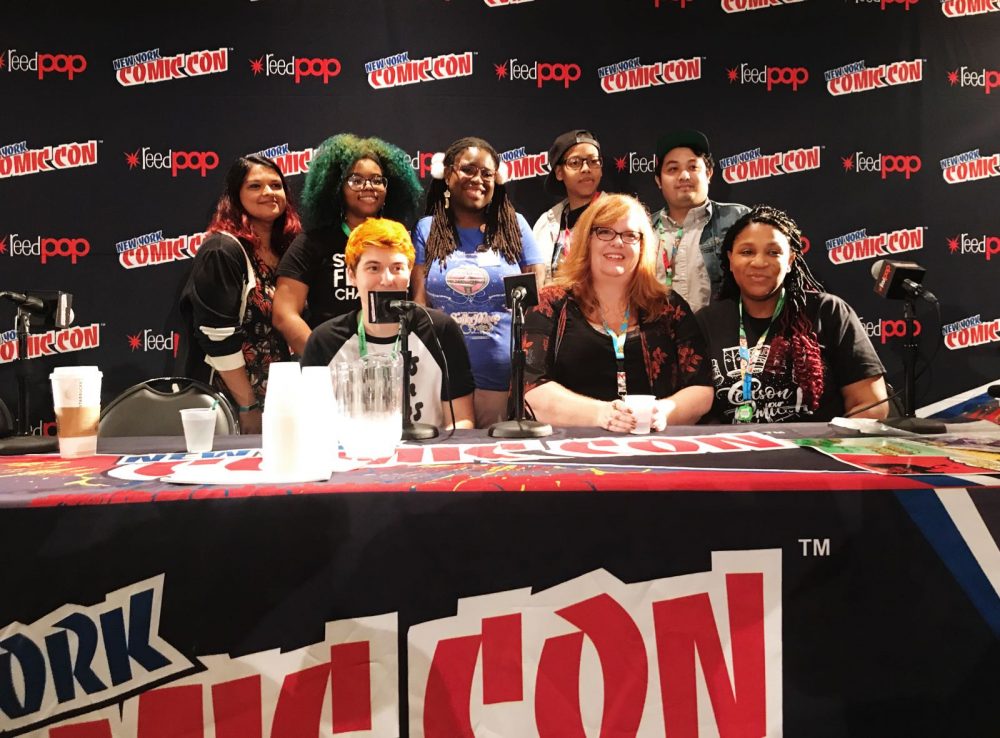
B (L-R): Zora Gilbert, Gail Simone, Tee Franklin
Four years ago Tee Franklin (Bingo Love) started #BlackComicsMonth at New York City Comic Con. Today an audience packed a large conference room at the Javitz Convention Center to celebrate and acknowledge the work of marginalized creators. This panel took a refreshing take on how it talked about representation in that the much of the focus was on the triumphs and hope of being a marginalized creator in the industry. The collected panelists included: Cameron Glover (Nerds of Prey Podcast), Vita Ayala (The Secret Love of Geeks) Gail Simone (Brids of Prey, Wonder Woman), Shauna Grant (Princess Love Pon), Nidhi Chanani (Pashmina), Zora Gilbert (Dates) and Fabian LeLay (Jade Street Protection).
Tee Franklin is tired of the word diversity, “The word diversity makes my ass itch.” It was an expression that resonated with the panelists and audience members. None of this is about diversity, it’s about representing the world as it actually is. When people go outside into the world they come into contact with people from all walks of life, from all kinds of backgrounds and comics should explore and reflect this. The panelists assembled here each found their way into comics as a way to answer to a need which needed filling, to tell a story they felt was not being told in mainstream comics or elsewhere.
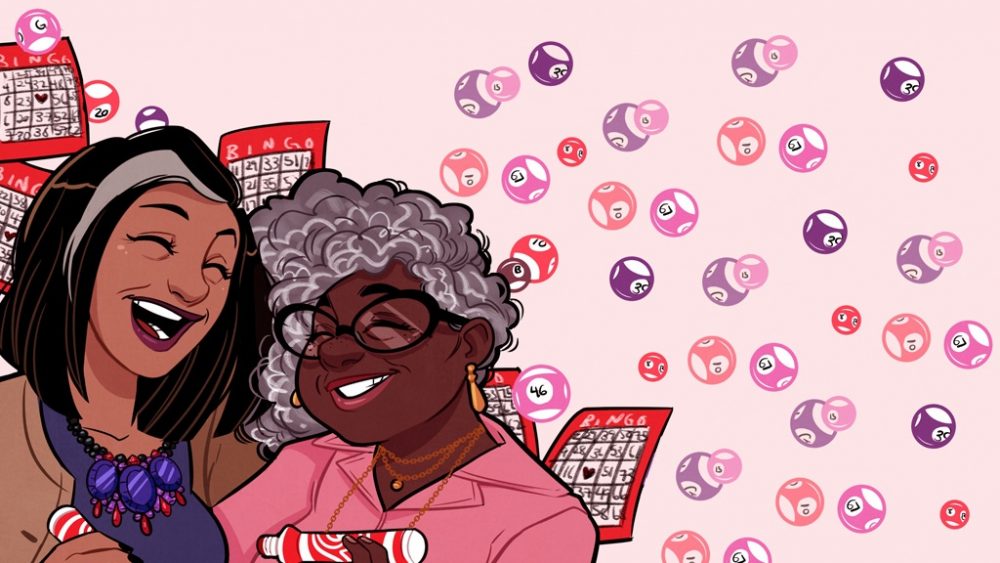
The panel moderator, Cameron Glover asked the panelists how identity and marginalization impacted their work. Each panelist took some time to tell their story and how they came to creating and writing about characters which more closely resemble their lived experiences. Shauna Grant wanted Black girls to see that they can be strong yes but that they could also be girly, love pink and sparkles. Grant says the character Princess Love Pon was a way for her to address the dearth of dark skinned girls in anime and manga, it was a way for her to draw what she wanted to see. Drawing what you want to see is something which resonated with many of the panelists. Tee Franklin asked the audience a rhetorical question, why would she draw anything but what she knew? Why would she draw what was already widely available when she could draw herself and her community, “as a Black, queer, disabled woman you don’t see yourself on the shelf.”
On writing about identity, Vita Ayala says it’s impossible to not put part of yourself into your creation. A clarifying moment for Ayala was her experience attending a mostly white college up north. Ayala quickly realized this was the first time many white students had ever met a queer and brown person, that didn’t sit right with them. Ayala says even if you grow up in a place where there are only people who look like you, you should still be exposed to different people and places. Creating comics was a way to help reach broader audiences and give them a chance to see experiences they may not be familiar with.
Fabian LeLay’s foray into comics was inspired by his experience growing up in the Philippines and only seeing white characters in television. “We were taught to self-hate, self-loathe, and we kind of erased our own individuality. When I made Jade Street it wasn’t about where they [the characters] were from, it was about who they were. I wanted to show people you are an individual and you don’t have to be tied to what society expects of you.”
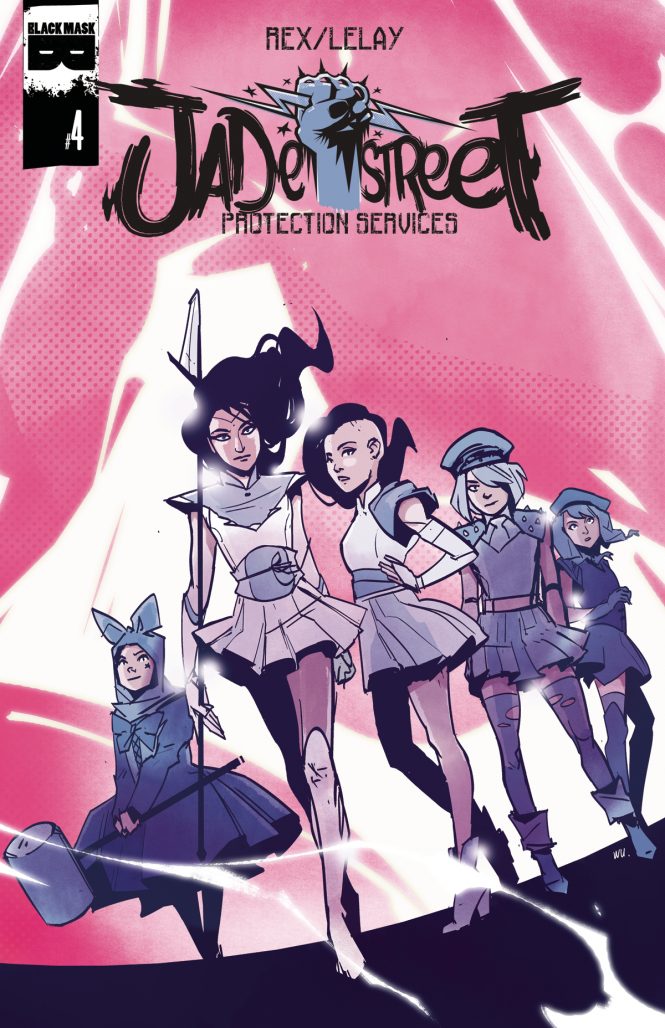
Many diversity in comics panels only focus on the challenges, about how hard it is to exist as a marginalized person in the comics community but Cameron Glover wanted to focus on something more hopeful. Instead, Glover asked the panelists to talk about their triumphs. For Tee Franklin, the fact that Bingo Love (a love story about two queer, Black grandmother’s) will be published by Image Comics is an incredible triumph.
Nidhi Chanani’s recently published graphic novel Pashmina is a triumph to her because she didn’t shy away from who she was. She didn’t have to sanitize the material or put an asterisk as a way of explaining her Hindu identity. Chanani also hopes to see more stories where people are free to express their identity without having to worry about how audiences will respond. Something Gail Simone echoed when she said she looked forward to the day when people stop worrying about writing their own story. “Stop getting in the way of yourself and just do it. Stop worrying about all the stuff you put in your own way. Your work will find an audience.”
The panelists touched on how important community is, from getting your work in front of people to boosting each other up, to holding one other accountable–community is what makes or breaks you. Zora Gilbert says community is everything to them and finding your own community is empowering. Gilbert took a moment to reflect on their experience with the comic Dates and how it enabled them to find both friendship and other like-minded creators. For Simone, community is what keeps her from the loneliness of the creative process, something all of the panelists agreed with.
The crux of the panel was to encourage the audience and others to be more proactive, to stop waiting or asking for permission from gatekeepers. Each panelist encouraged the audience to get more involved and bring those who may not traditionally be in to “diversity panels” to the table. Lastly, if there’s not a comic or a story you see in the world which accurately reflects you or your lived experience DIY it or as Franklin put it “do it your damned self.”
Seeing more marginalized creators have the opportunity to tell their own story, to have a panel full of marginalized people talking about their work is a reflection of hard won triumphs. The passion that drives people to create comics, no matter how small, no matter where it’s published is what gives each of these creators hope for the future.


